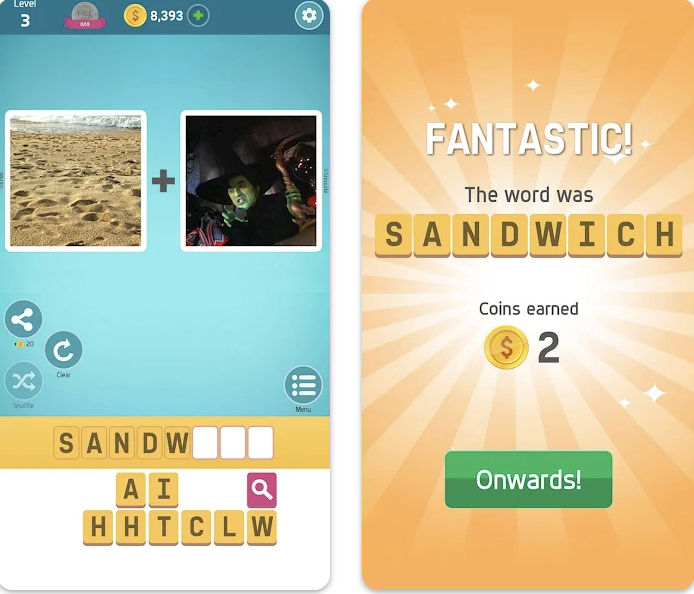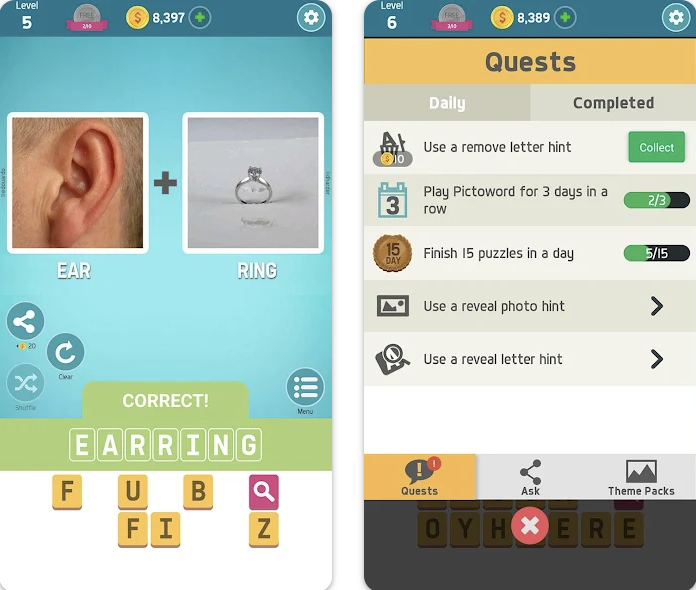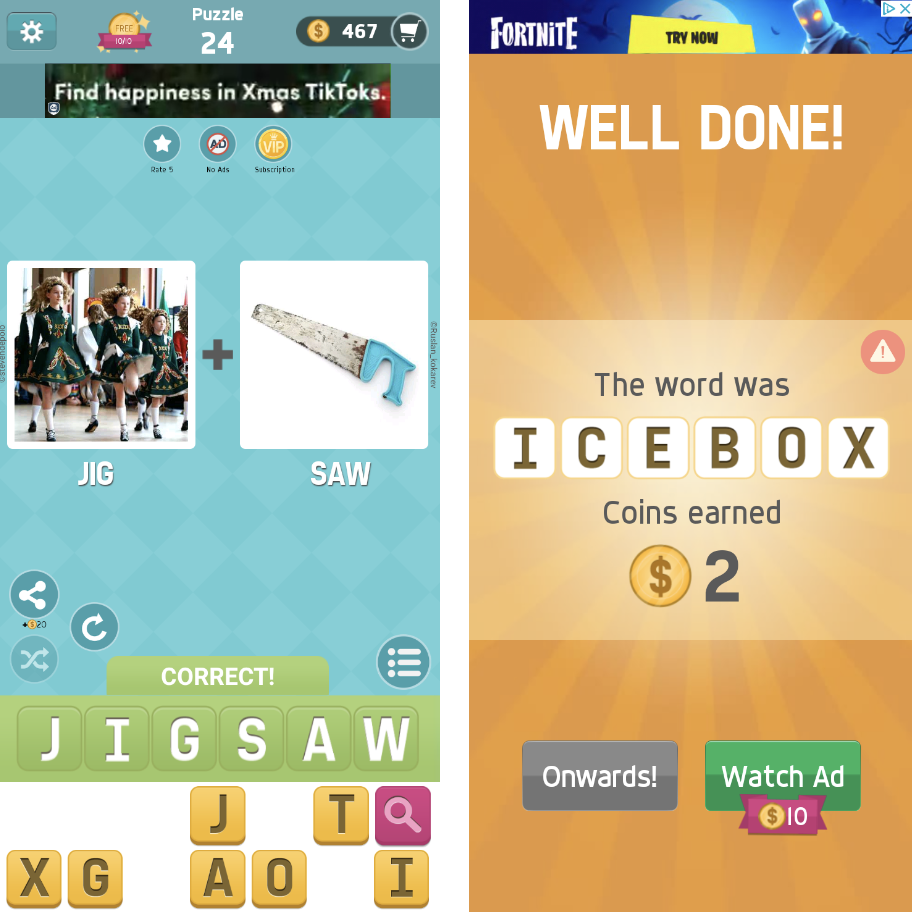
Welcome to Pixalate’s CTV & Mobile App Manual Reviews According to COPPA, a series containing the detailed factors the Trust & Safety Advisory Board educators used to assess an app’s child-directedness.
The educators manually review thousands of mobile apps available in the Google Play & Apple App Stores as well as connected TV (CTV) apps from the Roku Channel Store and Amazon Fire TV App Store using the COPPA Rule factors shown below & make those results available to the public at ratings.pixalate.com.
This post takes a look at a game which is available from the Google Play Store and Apple App Store. Our reviewer discusses how the subjective factors set forth in the COPPA Rule apply to the app and factor into the reviewer's determination as to whether the app is child-directed or general audience (i.e., it is not targeting children).
The teacher will indicate the factors they relied upon in their assessment using the 10 factors shown below that reflect the 10 child-directed factors in the COPPA Rule.

This is a simple word puzzle game, where players guess the word based on the two provided photographs. The mystery words are simple compound words that would likely not be too difficult for most children to guess. While adults might find it a bit too simple at first, the puzzles do gradually become more challenging and some adults might appreciate the simplicity of the game.
The game’s visual interface is simple, and appealing to children and adults. The game is displayed on top of a bright teal, diamond-patterned background. Photos are used, rather than illustrations, which eliminates the possibility of an artistic illustration style that is too childish or too adult. The stock-photoesque images are clear and easy to interpret.
Coins are the primary incentive system within the game. They are earned upon correctly guessing a word and for completing daily quests (such as finishing a set number of puzzles each day or using certain game features). Additional coins can also be earned by watching video ads.
The coins are used for hints during the game, such as revealing a letter or removing one of the letter choices. Coins can also be used to completely skip a puzzle that the player cannot solve.
Banner ads are displayed across the top of the screen during gameplay and video ads are played at intervals between levels. Optional video ads can also be used to earn extra coins or incentives for gameplay. The ads seem to be a mix of child-directed, mixed audience, and general audience games, apps, and business. Local businesses are also advertised, reflecting that the app is collecting and sharing location information with advertisers. Some reviews suggest inappropriate ads for children, and I did see a few zombie-type games that might scare younger children.
and
The Apple App Store and the Google Play Store do contain slightly differing descriptions, although the app itself is identical on both platforms. The description in the Apple App Store does not reference children, and says, “great for teens, adults, and everyone in between!” However, the Google Play Store does imply that children are also a target audience by saying, “Boys, girls, and adults will love this amazing new trivia word game.” Despite referencing teens and adults, the app is rated 4+ in the Apple App Store. This rating, alongside the Google Play ratings of PEGI 3 (European) and E (American) reflects that the app is not just for teens and adults, but for children as well.
The reviews also reflect a mixed audience, with numerous reviews mentioning parents (or grandparents) and children playing together. Some reviews suggest it is an appropriate difficulty level for both adults and children, while others mention that it is too easy for adults and even too easy for some children.
Privacy
According to the privacy policy, which was last updated on January 22, 2023, the developers do “not knowingly collect, maintain, or use personal information from children under 13 years of age” and specify that their services are not directed to children. However, there is no age gate in place to determine the age of the users. Kooapps indicates that they do collect and share location information, device information, cookies, and similar tracking information. They also receive demographic data from third parties.
Find Pixalate's full catalogue of reviews in our CTV and Mobile App Review Page
Screenshots of Pictoword



Pixalate’s Trust and Safety Advisory Board was created to bring in individuals with experience using child-directed apps in the classroom to review and assess which apps are child-directed. This manual review process serves to quality check Pixalate’s automated review process. See our full methodology for more information.
Disclaimer
This blog post published by Pixalate is available for informational purposes only and is not considered legal advice. By viewing this blog post, the reader understands and agrees that there is no attorney-client relationship between the reader and the blog publisher. The blog should not be used as a substitute for legal advice from a licensed professional attorney in the applicable jurisdiction(s), and readers are urged to consult their own legal counsel on any specific legal questions concerning any specific situation. The content of this blog post reflects Pixalate's opinions with respect to factors that Pixalate believes may be useful to the digital media industry. Pixalate's opinions are just that, opinions, which means that they are neither facts nor guarantees; and this blog post is not intended to impugn the standing or reputation of any entity, person or app, but instead, to report findings pertaining to mobile and Connected TV (CTV) apps.
*By entering your email address and clicking Subscribe, you are agreeing to our Terms of Use and Privacy Policy.
These Stories on Mobile
*By entering your email address and clicking Subscribe, you are agreeing to our Terms of Use and Privacy Policy.

Disclaimer: The content of this page reflects Pixalate’s opinions with respect to the factors that Pixalate believes can be useful to the digital media industry. Any proprietary data shared is grounded in Pixalate’s proprietary technology and analytics, which Pixalate is continuously evaluating and updating. Any references to outside sources should not be construed as endorsements. Pixalate’s opinions are just that - opinion, not facts or guarantees.
Per the MRC, “'Fraud' is not intended to represent fraud as defined in various laws, statutes and ordinances or as conventionally used in U.S. Court or other legal proceedings, but rather a custom definition strictly for advertising measurement purposes. Also per the MRC, “‘Invalid Traffic’ is defined generally as traffic that does not meet certain ad serving quality or completeness criteria, or otherwise does not represent legitimate ad traffic that should be included in measurement counts. Among the reasons why ad traffic may be deemed invalid is it is a result of non-human traffic (spiders, bots, etc.), or activity designed to produce fraudulent traffic.”

